Basic Math Skills Geometry Worksheets for Ages 3-5
5 filtered results
-
From - To
Discover engaging Geometry Worksheets designed for children ages 3-5 to build foundational math skills! Our carefully crafted activities introduce essential geometric concepts in a fun and interactive way. Young learners will explore shapes, sizes, and spatial relationships through colorful illustrations and hands-on exercises. These worksheets foster creativity while enhancing critical thinking and problem-solving abilities. Ideal for preschoolers and kindergarteners, our geometry resources align with early learning standards, encouraging a love for math from a young age. Download our free worksheets and watch your child embrace the joy of learning basic math skills through exciting geometric adventures! Perfect for parents and educators alike!
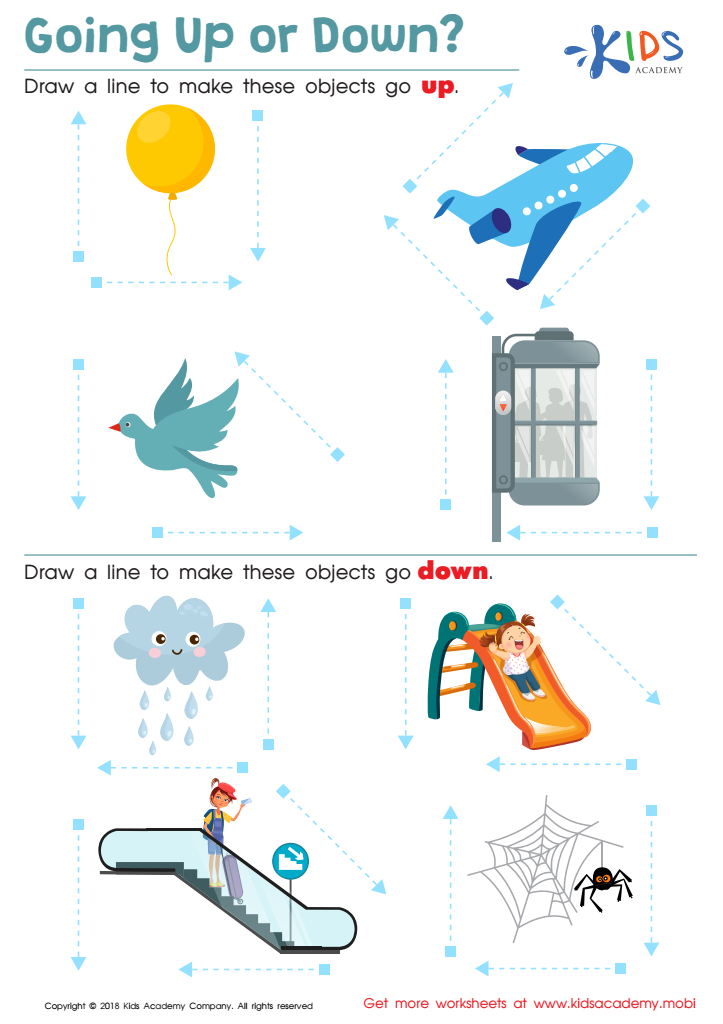

Going up or Down? Worksheet
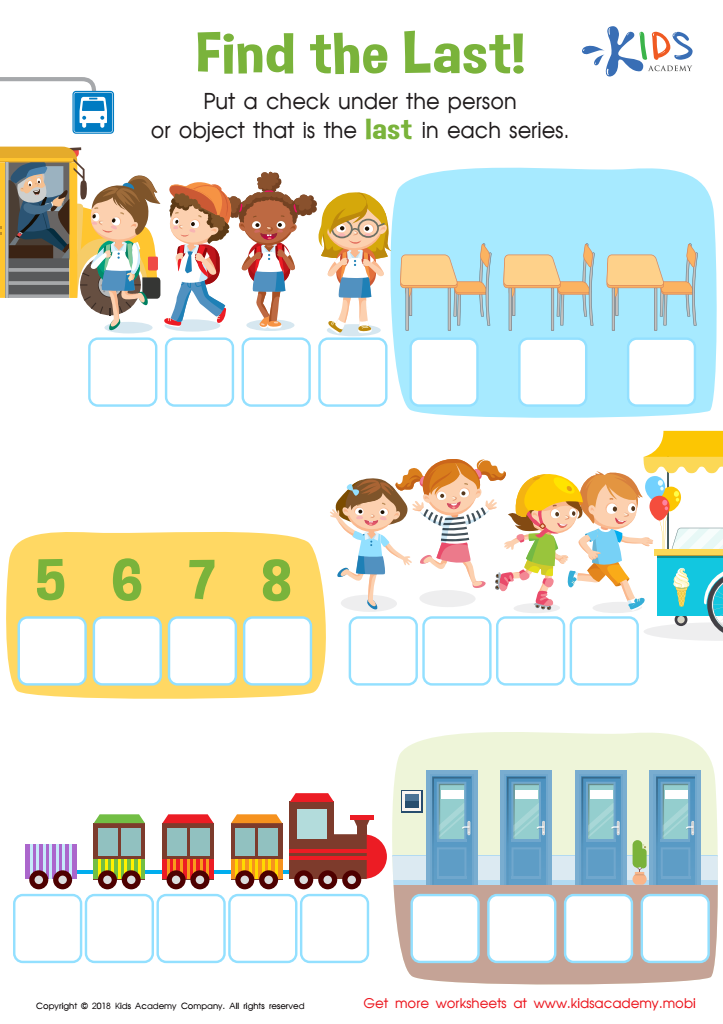

Find the Last! Worksheet
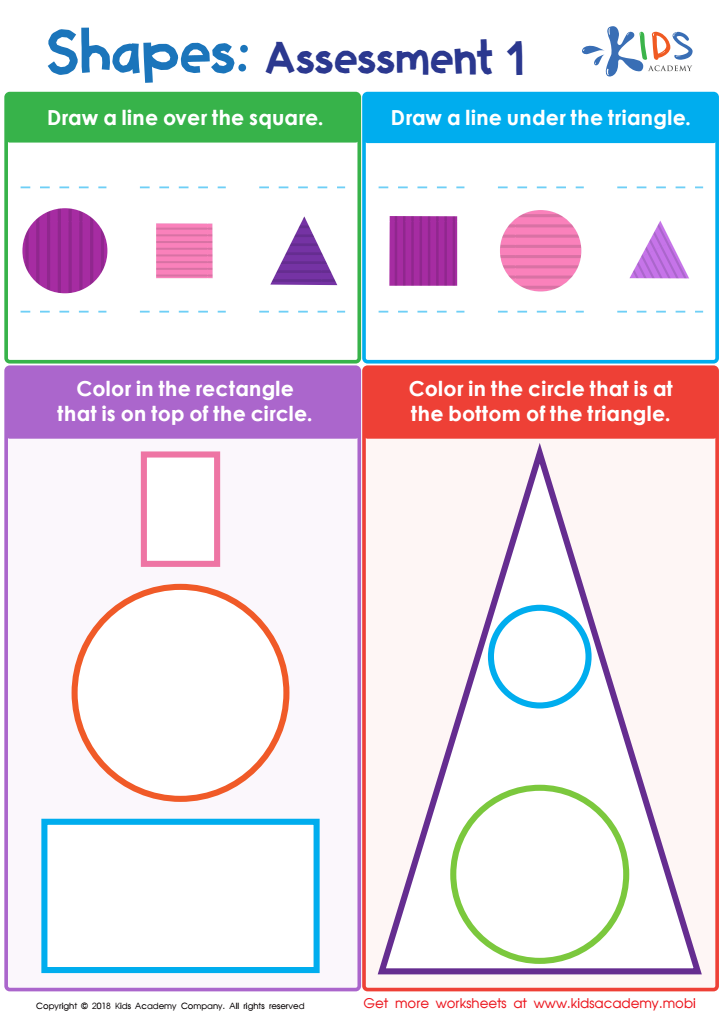

Shapes: Assessment 1 Worksheet
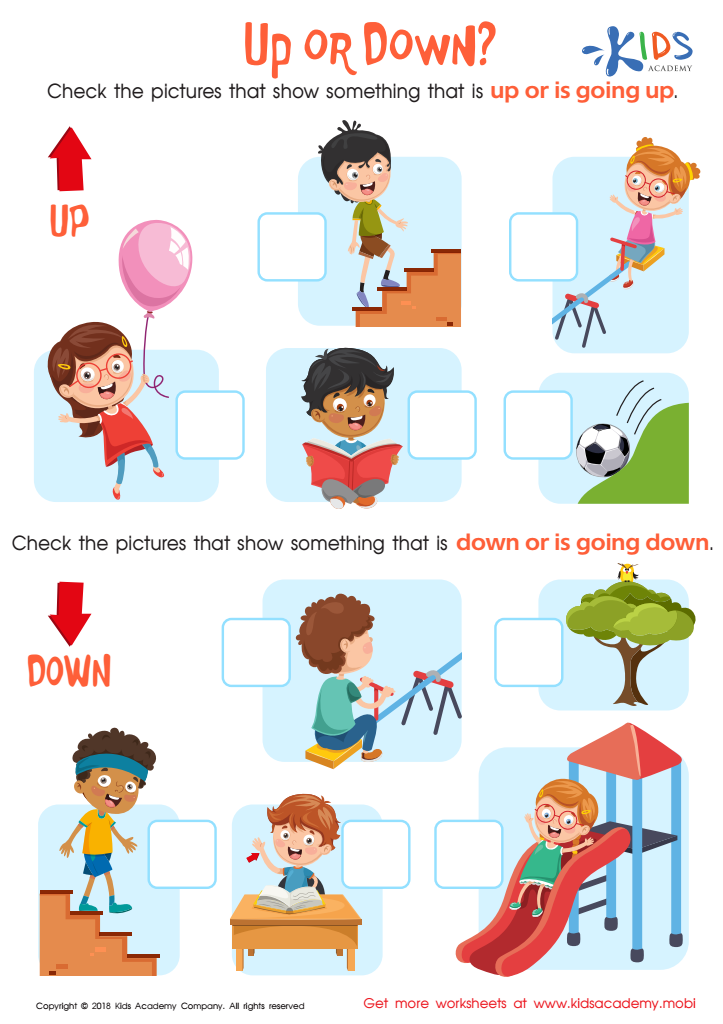

Up or Down Worksheet
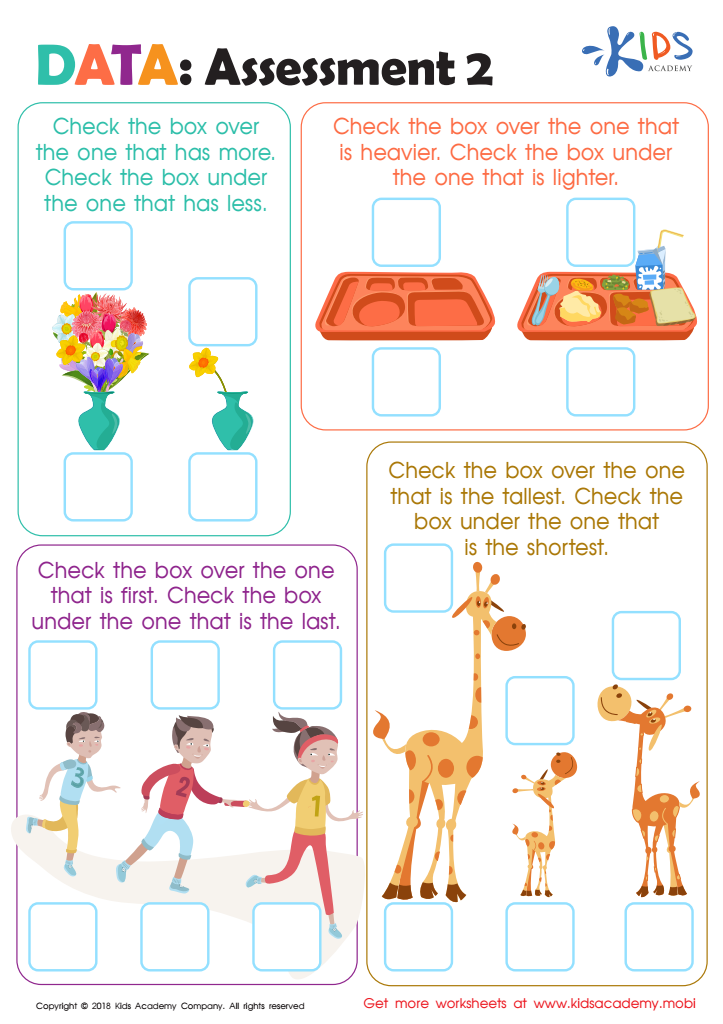

Data: Assessment 2 Worksheet
Parents and teachers should care about basic math skills, particularly geometry, for children ages 3-5 because early exposure lays a vital foundation for future learning. At this age, children actively explore their environment, making it an ideal time to introduce geometric concepts like shapes, sizes, and spatial relationships. Recognizing shapes helps develop critical thinking, visual-spatial skills, and categorization abilities.
Additionally, geometric understanding fosters creativity and problem-solving. Through activities like building with blocks or drawing shapes, children learn how to interact with the world around them, enhancing cognitive development. These foundational skills also contribute to their math readiness, setting the stage for more complex mathematical concepts in later years.
Engaging with geometry at this age can also stimulate language development as children learn to describe shapes and spatial relationships using appropriate vocabulary.
Moreover, hands-on geometric activities promote positive social interactions, as young learners often collaborate in play settings. By prioritizing this aspect of early education, parents and teachers contribute to holistic development—laying the groundwork for academic success and effective problem-solving skills in life. Emphasizing basic geometric skills ultimately nurtures a confident and curious learner, ready to embrace new challenges.
 Assign to My Students
Assign to My Students






















